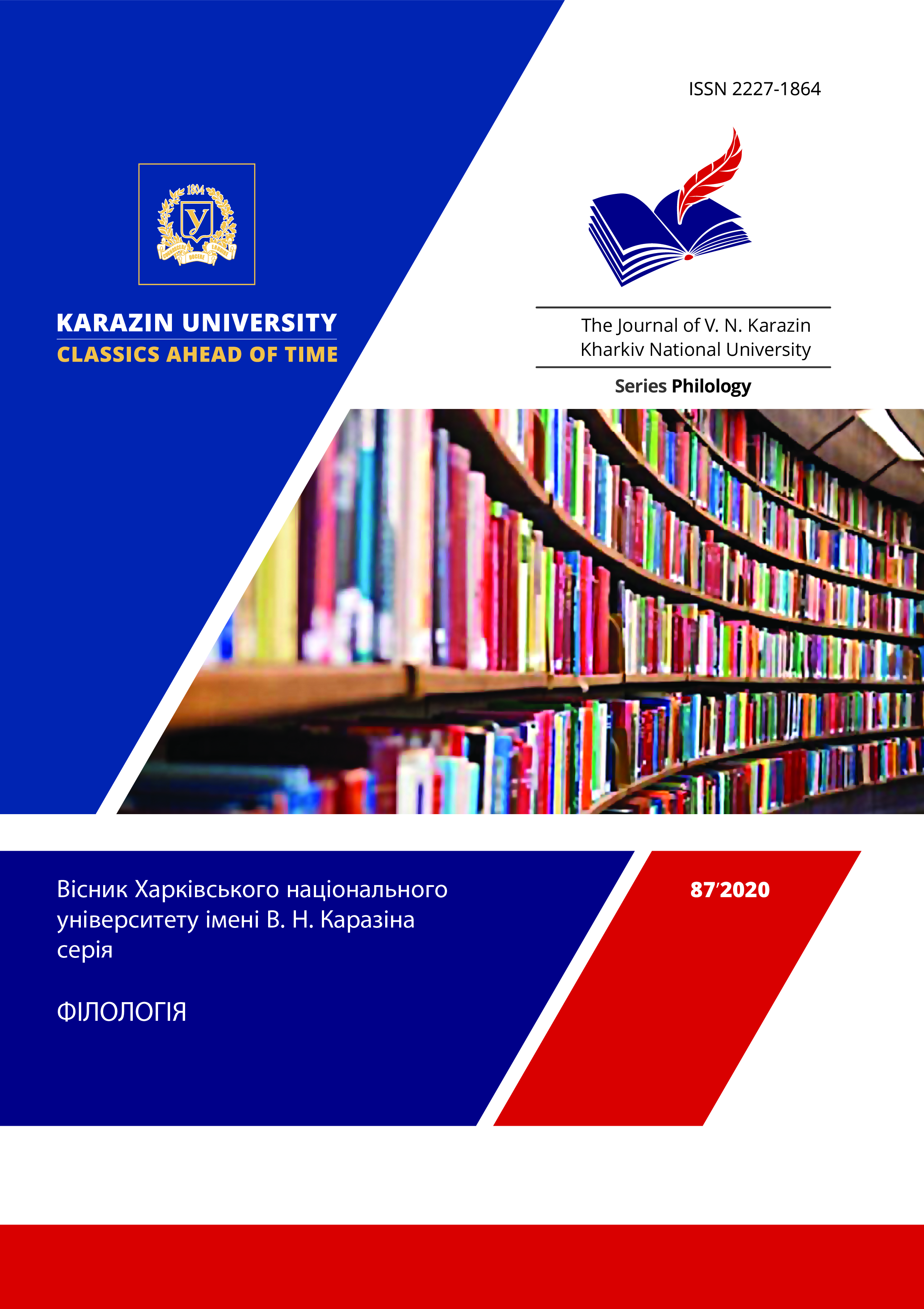Stable word combinations сomprehensive dictionary as a source base for translation lexicographical works
Abstract
In Russian, Ukrainian, and Polish lexicographical work, all the preconditions for organizing a comprehensive stable word combinations dictionary have been formed. The these works registers in each Slavic linguistic school will have to be formed by various units of different types, which are characterized by the semantic integrity. First of all, it is planned to include word equivalents, phraseological units, terminological combinations, proverbs, sayings. The formed dictionaries will reflect the language processes dynamics because a significant part of their register units have a transitional status of existence, as a result of which this work will be useful for theoretical linguistics. However, first of all, the need of compiling this dictionary is caused by practical activities.
In Russian, Ukrainian, and Polish basic monolingual dictionaries stable word combinations are presented quite fully, but the approaches to their organization are mostly understandable only to specialists. Users of these works have significant difficulties in finding any stable combination. This activity is somewhat facilitated by specialized dictionaries of various units, but even in this case, the user requires some linguistic training.
Being organized according to a certain concept, a stable combinations comprehensive dictionary will greatly facilitate the user's search, especially translation activities, which are greatly complicated by the lack of dictionary registers for differently formed units. This is true for the translation from one Slavic language to another, as well as similar actions in the field of Slavic-Germanic and, of course, Slavic-Romance languages etc.
In the proposed work it is proved that the compiled complex stable word combinations dictionaries in each separate Slavic language will become an important source for improvement of already created paper and on-line translation dictionaries.
Downloads
References
Intehrovana leksykohrafichna systema «Slovnyky Ukrainy» / Ukrainskyi movno-informatsiinyi fond. URL: http: Icorp. ulif. org. ua. / dictua/: explanatory dictionaryof Ukraine (data zvernennia: 20.09.2020).
Linhvistychno-informatsiini studii: Pratsi Ukrainskoho movno-informatsiinoho fondu NAN Ukrainy: u 5 t. T. 3: Tlumachna leksykohrafiia. Kn. 1: Slovnyk ukrainskoi movy u dvadtsiaty tomakh / V. A. Shyrokov ta in. Kyiv: Ukrainskyi movno-informatsiinyi fond NAN Ukrainy, 2018. 276 s.
Morkovkin, V. V., Lutskaya N. M., Bogacheva G. F. ta іn. Ob"yasnitel'nyj slovar' russkogo yazyka: strukturnye slova: predlogi, soyuzy, chastitsy, mezhdometiya, vvodnye slova, mestoimeniya, chislitel'nye, svyazochnye glagoly. Moskva: Аstrel': АST, 2002. 432 s.
Luchyk A. A. Leksykohrafichnyi opys stalykh slovospoluchen: problemy i perspektyvy. Mahisterium: Movoznavchi studii. Vyp. 50. Kyiv, 2013. S. 47–49; Luchyk A. A., Kozlovskyi S. Pro deiaki problemy ukrainskoi perekladnoi leksykohrafii. Naukovyi visnyk Volynskoho natsionalnoho universytetu imeni Lesi Ukrainky Volynskyi natsionalnyi universytet im. Lesi Ukrainky. Seriia: Filolohichni nauky: Movoznavstvo. Lutsk. T. 2. Ch. 2. 2011. C. 4–9.
Perekladach Google. URL: https://www.google.com (data zvernennia: 20.09.2020).
Rogozhnikova R. P. Slovar' ehkvivalentov slova: narechnye, sluzhebnye, modal'nye edinstva. Moskva: Rus yaz., 1991. 254 s.
Slovar' russkogo yazyka: v 4-kh t. / gl. red. А. P. Evgen'eva. Moskva: Russkij yazyk, 1987. T. 1. 696 c.
Slovnyk ukrainskoi movy: u 20 t. / vidp. red. V. M. Rusanivskyi. Kyiv: Nauk. dumka, 2010. T. 1. 911 s.
Chumak V. V, Shevchenko I. V., Shevchenko L. L. ta in. Ukrainskyi orfohrafichnyi slovnyk ukrainskoi movy. Vyd 9. Kyiv: Dovira, 2009. 1011 s.
Shyrokov V. A. Informatsiina teoriia leksykohrafichnykh system. Kyiv: Dovira, 1998. 331s.
Yazykoznanie. Bol'shoj ehntsiklopedicheskij slovar' / gol. red. V. N. Yartseva. Vid 2. Moskva: Bol'shaya Rossijskaya ehntsiklopediya, 1998. 685 s.
Ayto J. Oxford Dictionary of English Idioms. URL: https://www.amazon.com/Oxford Dictionary English Idioms Reference/dp/019954378X#reader_01995437X (data zvernennia: 20.09.2020).
Cambridge Dictionary +Plus. URL: https://dictionary.cambridge.org/ru/plus/ (data zvernennia: 20.09.2020).
Cambridge Dictionary. URL: https://dictionary.cambridge.org/dictionary/engl/ (data zvernennia: 20.09.2020).
Cambridge Dictionary. URL: https://dictionary.cambridge.org/dictionary/English–Russian English–Polish English–German (data zvernennia: 20.09.2020).
Luchyk A. Interpretation of Ukrainian and Polish Adverbial Word Equivalents Form and Meaning Interaction in National Explanatory Lexicography. Cognitive studies/ Etudes cognitives/. Warsawa, 2015. URL: http://creativecommons.org/licenses/by/3.0/pl/ DOI 10.11649/cs.2013.018 (data zvernennia: 20.09.2020).
Uniwersalny słownik języka polskiego PWN: T. 1–4 / Ed. S. Dubisz. Warszawa: Wydawnictwo naukowe PWN, 2008. T. 1. 1316 s.




